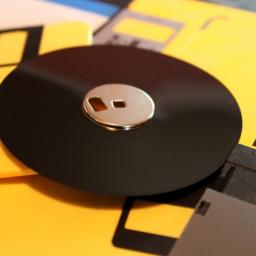Why the floppy disk is still used today
 When was the last time that you used a floppy disk? While the average user might not, there are those out there who can't settle for anything else. "In the 1990s, hundreds of thousands of industrial machines were built around floppy disks, which were high-tech of the time. They were built to last fifty years." But floppy disks were not. Replacing the machines would seem the logical option, but many of them are too valuable to scrap, or can't be easily replaced by a modern equivalent. ATMs, and some aviation tech are prime examples of devices that still have a need for data introduced through a floppy drive.
When was the last time that you used a floppy disk? While the average user might not, there are those out there who can't settle for anything else. "In the 1990s, hundreds of thousands of industrial machines were built around floppy disks, which were high-tech of the time. They were built to last fifty years." But floppy disks were not. Replacing the machines would seem the logical option, but many of them are too valuable to scrap, or can't be easily replaced by a modern equivalent. ATMs, and some aviation tech are prime examples of devices that still have a need for data introduced through a floppy drive.Last year, a broadcast of 60 Minutes surprised many viewers with the discovery that 8-inch floppy disks were still the preferred method of removable storage for the computers in a U.S. Air Force nuclear silo. The security of this outmoded technology was difficult to replicate with modern materials. "The floppy disks and associated technology are tried and true," I was told. "As you can imagine, we want to ensure the utmost in reliability and efficacy when operating such a critical weapon system. Therefore, if a system is 'old,' but still reliable, we are inclined to use it." When it comes to mission-critical hardware that literally controls a potential nuclear holocaust, "tried and true" carries more weight than "new and improved."
There are many niche reasons that an organization or an individual would continue to use floppy disks in 2015, but the audience isn't large enough to make production of new disks a winning proposition. There's a finite amount of floppy disks in the world, and that puts a limit on their usage out in the wild.